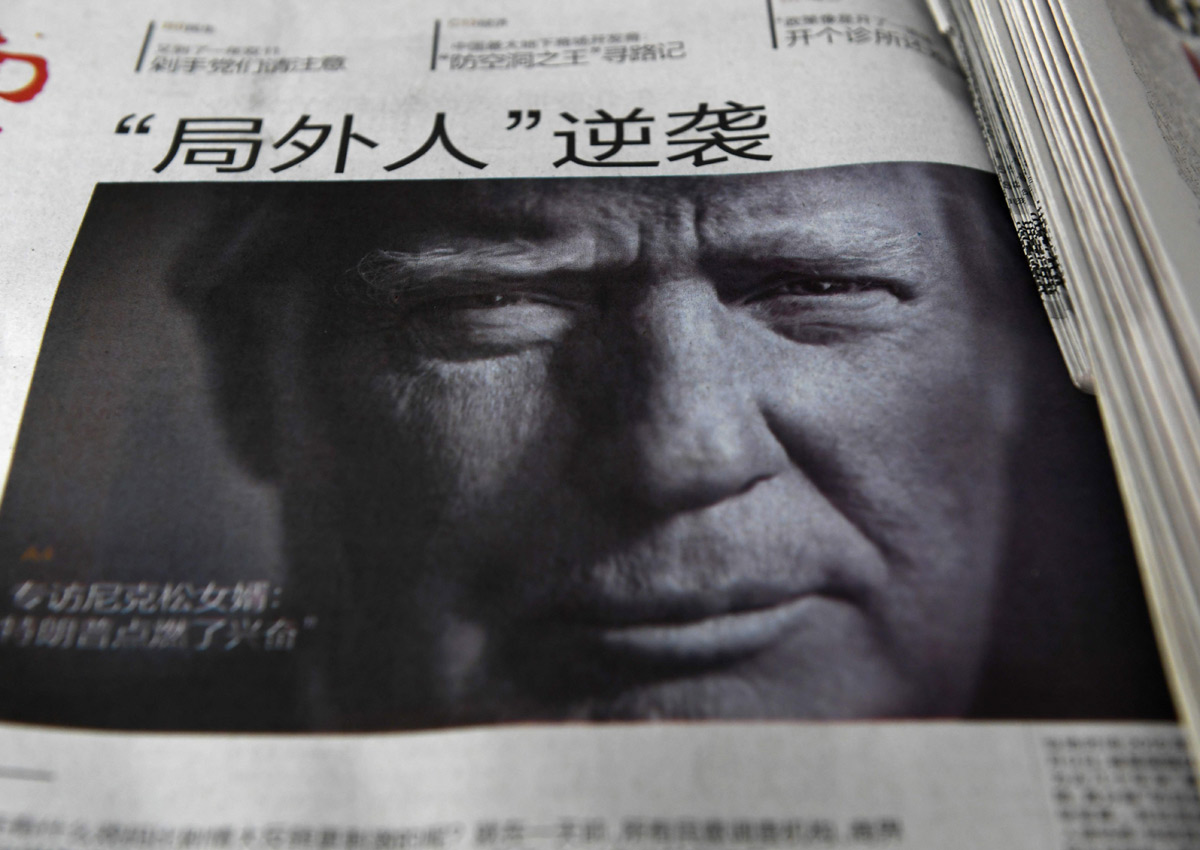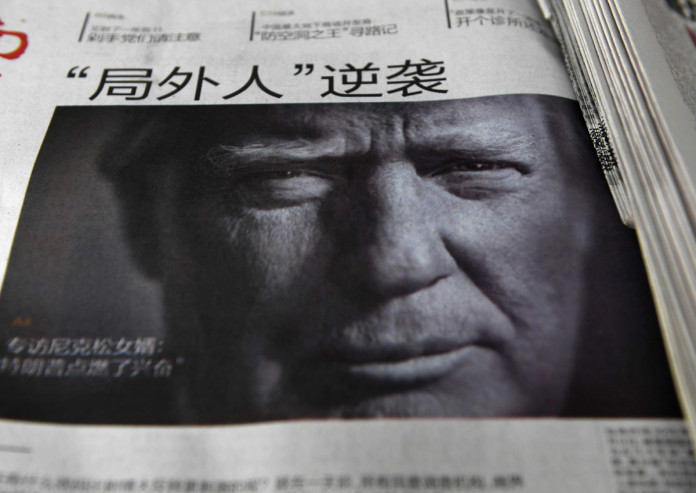Donald Trump’s push to reset America’s relationship with China has led him to question a fundamental principle that allows him to hold talks with Beijing in the first place.
Trump recently suggested he could scrap America’s longstanding “one China” principle, a core tenet of Chinese belief that holds that Taiwan is part of the mainland.
The principle goes far beyond politics or economics in China, into the very heart of how both Beijing and regular Chinese citizens define their nation.
Trump told “Fox News Sunday” that he did not know “why we have to bound by a ‘one China’ policy unless we make a deal with China having to do with other things, including trade.”
Read Also: Chinese media hit out at Trump over ‘One China’ comments
His comments prompted a strong rebuke from Beijing, as a foreign ministry spokesman said the government had “serious concern” about Trump’s remarks.
Leaders in both Beijing and Taipei say they are the legal government of China, but the US chose in the 1970s only to recognise only Beijing in order to have a diplomatic relationship with the country.
Trump’s tactics risk upsetting a fundamental understanding with China that allows him to have talks with its government at all, experts said.
Beijing’s view of one China is a “sacred, foundational” principle, and using the policy to bargain likely will not help Trump reach his policy goals, said Robert Daly, director of the Kissinger Institute on China and the United States at the Wilson Center.
“This is not a bargaining chip that you use to come closer to getting your ideal set of circumstances regarding trade matters, human rights or anything else,” Daly said.
“To withdraw from the one China policy is to renounce formal relations with China. Then there’s no basis to discuss any of these issues.”
Beijing made that clear in its response to Trump’s Sunday comments.
“If the [one China policy] is compromised or interfered with, any sound and steady development in China-US relations and co-operation in various fields is out of the question,” Chinese Foreign Ministry spokesman Geng Shuang told reporters.
Trump has insisted he wants to tip the economic balance between the world’s two largest economies, which are critical trading partners for one another.
Read Also: Trump questions “one China policy” without Beijing concessions
In 2015, the flow of goods from China to the United States exceeded the flow in the opposite direction by $366 billion.
Trump targeted China during his campaign, frequently saying the Asian giant unfairly devalued its currency and taxed US exports.
Those moves make Chinese products more competitive relative to American products.
Trump promised to give the US the upper hand again, even though China since mid-2014 has struggled to keep its currency higher against the dollar, not lower.
The president-elect’s populist economic rhetoric blamed China, Mexico and other countries for manufacturing job losses in the United States.
Despite what are in some cases valid complaints about Chinese policy, a re-evaluation of one China may not give Trump any leverage to achieve his goals, wrote Richard Bush, a senior fellow at the Brookings Institution and Taiwan expert. He added that Taiwan could end up suffering “collateral damage” in the process, as Beijing could be less inclined to seek reunification with the island nation peacefully.
“Whatever the current problems in the US-China relationship today, our reneging on the Taiwan part of the packaged deal would not provide leverage on trade, North Korea, the South China Sea, or any of the other issues that roil the relationship. More likely, it would rattle the entire framework of the relationship, and cause Beijing to rethink its policy of seeking reunification by peaceful means,” he wrote in an open letter to Trump.
Still, it may be reckless to read too much into Trump’s intentions before he takes office, said Anthony Cordesman, the Burke chair in strategy at the Center for Strategic and International Studies.
Read Also: Taiwan urges calm from China after Trump call
Campaign rhetoric often differs from White House policy, and Trump may not plan to act on the comments he makes now, he said.
It is not yet clear if Trump actually supports a strong, independent Taiwan or if his comments are just one potential tool he is probing before he takes office.
Trump on Tuesday announced that he picked Exxon Mobil CEO Rex Tillerson as secretary of state, so the administration may not have developed detailed foreign policy yet.







